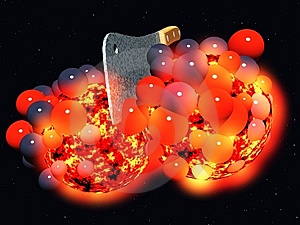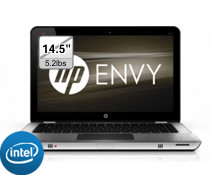H-P CEO Leo Apotheker has a very different set of talking points this week than he did last week in a hastily called teleconference after a trading halt which announced the halt to WebOS investments and the spinoff of the $38 billion Personal Systems Division (PSD). Analysts and Wall Street immediately started picking likely buyers of H-P’s PC product line.
But Monday’s interview with the Wall Street Journal tells a different story with a decidedly different outcome for shareholders. Quoting Apotheker:
What we’re really doing is creating two companies: One focused on the enterprise, and one which will be a highly-effective, end-user device business. It will be much more than PCs.
These businesses are ticking at different speeds, need to have different structures, and make different investment decisions. The device business [is] a fast moving consumer business. If you want to compete in this business you have to be much faster than a conglomerate can move in most circumstances.
The other side of H-P, the enterprise side, that’s where we acquired Autonomy. We have some great ideas for how we can scale that business.
Our default option is to see if we can spin this business off to our shareholders. That’s not the only option that we’re looking at. The board and management have been working on this for quite some time. If we really want to take the necessary steps, you have to involve a lot of people and once you inform a lot of people you need to inform the market.
We said it would take anywhere from 12 to 18 months to complete the spin, and it’s obvious that the decision will happen much sooner. The board will want to make the best decision for shareholders and our current hypothesis is that is by spinning the business to shareholders.
This different story — or Friday’s story told better — is a lot less suicidal than throwing PSD off the bus to the highest rapacious bidder. Motorola did this last year, spinning the personal devices company off from radios and public sector. So there certainly is precedent.
But what do we make of “one which will be a highly-effective, end-user device business. It will be much more than PCs?” My reading is everything consumer including phones, PCs, and printers. If Leo really wants to focus on medium and large enterprises, he’ll throw in transactional servers, storage, and maybe even the entire small-medium business (SMB) organization.
If the spinoff to shareholders looks like my sketch above, it’s not a bad strategy. Makes H-P kinda look like Samsung, which makes smartphones and oil tankers through highly decentralized business units.
Here are the concerns H-P shareholders face in considering a deal, once announced:
- It’s all about execution. Slamming together PCs and printers does not ensure success. And even enterprise company sales reps sell PCs, or used to. The devil is in the details.
- The independent, entrepreneurial culture does not exist at H-P. Where does the PC Newco innovation DNA come from?
- By over-spending in a $10 billion bid for Autonomy, H-P has only $3 billion in cash. Where does PC Newco get the billions it will need for R&D and cash flow? Underfunded, the effort will quickly disintegrate.
- Did the premature and botched announcement of the spinoff last Friday freeze PSD staffers like deer in headlights? Will the human capital disappear before PC Newco really gets started? Didn’t $5 billion in Palm WebOS investment get vaporized?
- Can any big PC company — with the glaring exception of Apple — do much better than 6% margins in a fast-churn product rat race?
- How will consumers react to PC Newco branding (let alone products)? When IBM spun off PCs to Lenovo, the valued ThinkPad brand went to Lenovo. take away the H-P name and logo, and the products won’t sell as readily. And Pavilion as a brand does not come close to the value of ThinkPad.
We’ll leave how the rest of the PC ecosystem might react to the PC spinoff to another day.
via H-P CEO Apotheker Defends Strategy – WSJ.com.

